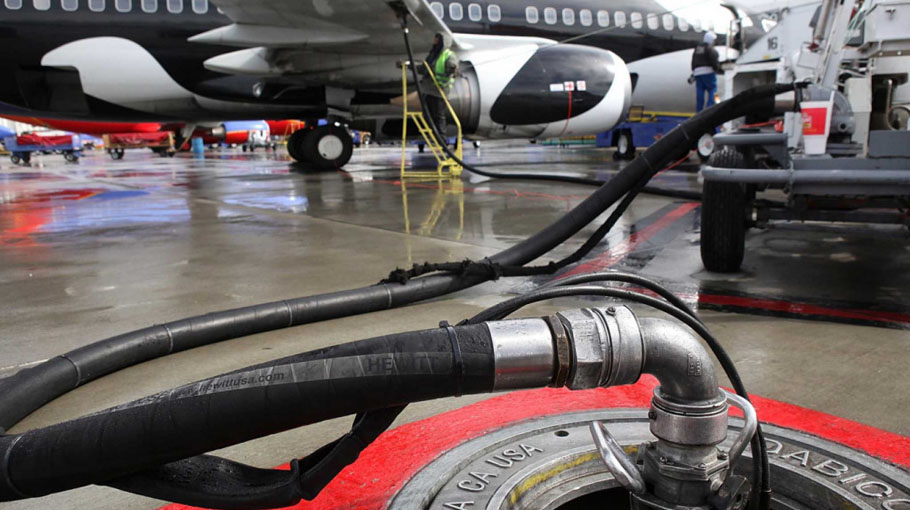Jet fuel price hike threatens local aviation industry

Jet fuel prices have gone up again in the country. Forced to coordinate with the international market price, jet fuel price is gradually increasing threatening the very existence of the location airlines.
The price of jet fuel has increased 18 times in the last one and a half years in the country. Bangladesh Petroleum Corporation indicates that it could increase further.
When the aviation sector is expanding its wings in the country, such repeated price increase may pull the sector backward. Aviation experts said the price of each domestic route ticket will increase further. Passengers will have to bear the burden as the airlines are forced to raise the air ticket price.
It is learned that last week, the price of jet fuel in both, domestic and international markets, has gone up. Padma Oil Company, a subsidiary of Bangladesh Petroleum Corporation (BPC), has increased the price from Tk 100 to Tk 106 per liter.
In a span of two years, the price of fuel has increased by Tk 60. The new price came into effect on May 15. According to the new order, to operate international flights, one has to buy oil at USD 1.09 per liter.
Earlier, in October 2020, the price of jet fuel for domestic flights was fixed at Tk 46 per liter. In January 2021, the price was increased to Tk 53, Tk 55 in February, Tk 60 in March, and Tk 61 in April. However, the price was reduced by Tk 1 per liter in May.
In June, the price was increased to Tk 63, in July it was increased to Tk 66, in August it was increased to Tk 67, in October it was increased to Tk 70 and in November it was increased to Tk 77.
In January 2022, the price of jet fuel was reduced by Tk 4 in two phases. The price was last fixed at Tk 100 in April.
Aviation experts said 40 percent of an airline’s operating costs are spent on jet fuel. The higher the price of jet fuel, the higher the cost. Countries that are buying oil at lower prices are having lower operating costs, they are offering lower ticket prices for passengers. And due to the high price of jet fuel in Bangladesh, the revenue of the airlines is decreasing day by day.
If this situation continues, the airlines of Bangladesh will be knocked out of the competition in the international aviation market. They have even mentioned their additional operating costs behind the closure of companies such as Regent, GMG and United Airways.
US Bengal General Manager Kamrul Islam told Bangladesh Post, “In order to survive in such competition with foreign airlines, the cooperation of various government agencies has become very important. One of them is the regulatory body Civil Aviation Authority of Bangladesh, Bangladesh Petroleum Corporation and others. Jet fuel prices have risen 130 percent in the last 18 months, both during and after Covid-19.”
He said, “Bangladeshi airlines have to compete with all foreign airlines. The jet fuel price has a direct effect on the fare fixed for passengers. As a result of that fare increase, domestic airlines are facing extreme losses. During the 2008 recession, the three newly launched airlines - United Airways, Aviana Airways and Best Air, were forced to close before the end of the year due to the inability to keep pace with the rise in jet fuel.”
“As a result, Bangladesh Aviation suffered losses, along with the reluctance of private investment in the aviation sector. During the pandemic, airlines requested the government to waive various charges, especially aeronautical and non-aeronautical charges, to keep the aviation sector afloat. But sadly, instead of waiving the true charge, I saw two new charges being added - the airport development fee and the security fee. Which goes directly on passenger fares,” he added.




